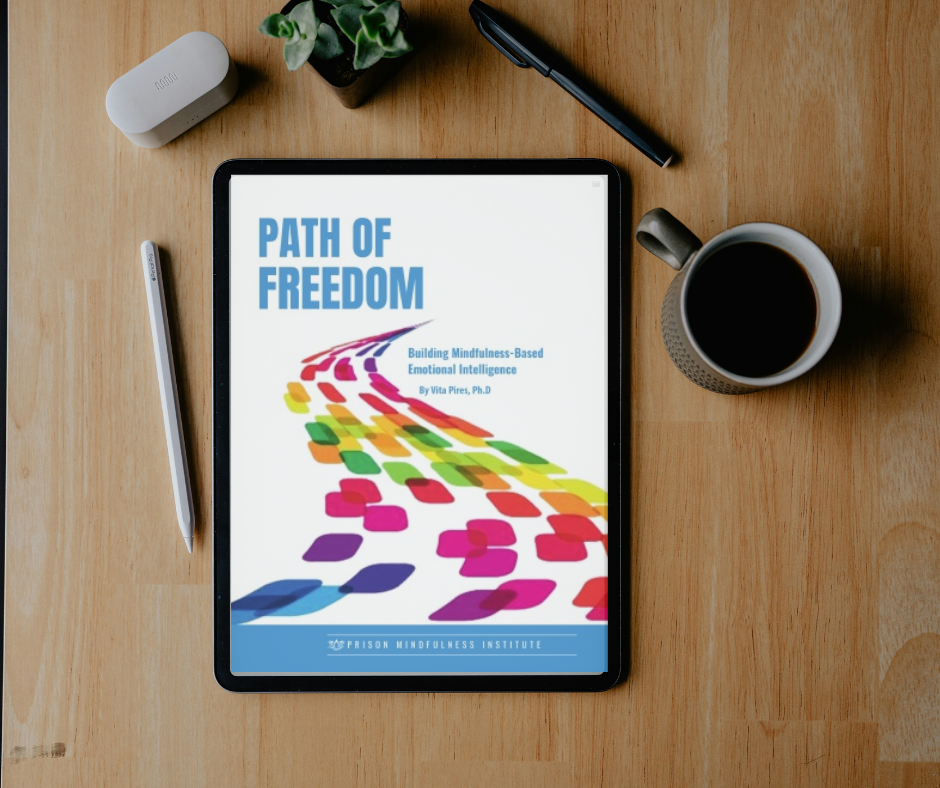Skillful Communication Behind the Walls
- Madrone Phoenix, MSW.

- Nov 17, 2011
- 3 min read
Updated: Apr 22, 2023
“…this class was about cutting through those habitual patterns most of us have.”
Last night we went into the prison for Class 8 in the Path of Freedom curriculum. This class was about working with skillful communication. As most of you who have spent time inside or those who go in to volunteer or work know, it’s always quite a situation to be inside a prison.
If it’s not the muted blocks of concrete that we call walls or the overhead lights full of excited mercury vapor, the reflective metal barbed wire immediately brings me into their day-to-day reality. It’s quite a situation in there.
So there we are, three women sitting in front of a class of over 40 men (including two new guys who joined us from the recently closed facility). And so begins the topic of empathic, skillful, and effective communication. Rebecca opened us up to a listening meditation for a few moments, stressing that the first step in effective communication is learning to listen. For real, listen…not the “Oh my God, would he shut up already so I can talk about how the guard pissed me off too.”
It’s common how easily we all can get caught up in our own minds and not be able to listen to another genuinely. It’s a skill we must learn, and this class was about cutting through those habitual patterns most of us have.
During the first part of the class, we passed out some sheets of paper and asked the guys to write down a complaint. Unsuspectingly, a common theme was the food inside. “We don’t get enough food here,” “the food in here sucks,” etc. Afterward, we collected all the papers and asked what the needs under some of the complaints could possibly be. “I miss my daughter” was quickly identified as a need for connection, affection, and love. Can you think of what the common need would be for better food?
Even in a place called prison, there was an opening. Something shifted when we could take another’s complaint and turn it into a universal thing. Something was more accessible around empathy when we could take the focus off a certain person and identify what is going on underneath it all.
The other powerful thing was when Kate Vita introduced the idea of using words like “always” or “never” when we start a conversation. Statements like, “You never write me” or “you always talk shit” creates an immediate defensive mechanism. This defense stagnates any organic unfolding process between two (or more) people of genuine and empathic communication to take place.
This led us to a gate of discussion around the idea of ‘evil.’ I brought up Hitler’s real-time horror story quoting Marshall Rosenberg’s “Anything anyone does is to make their lives more wonderful” – not always the easiest concept to get. “Hitler did not plan to take over the world and mass murder millions of people to make his life worse!”
I exclaimed after about 5 minutes of questions and discussion. Many of the guys nodded in agreement and seemed to ponder this possibility of basic goodness. (Something so simple, yet, it took me going to Auschwitz to get this for myself).
Even in a place with a seemingly infinite stream of “NO’S!” there was a deep sense of possibility blossoming in that concrete bloc room last night. There was a recognition in seeing the humanity in your younger cellmate who mocks you by calling you an ‘old man.’ There was a clear collective seeing, through this process, of together discovering the possibility that your younger cellmate is just trying to fulfill his need for connection or humor or power or any of the other needs we ALL have. This realization seemed to hold the potential to change how one prisoner might respond the next time he’s called an ‘old man.’ He may likely see the need, not the words, and find a healthier place within himself to respond more skillfully.
It was a meaningful class. I feel deeply privileged to be able to bear witness to and share in such a transformational time and space with those living behind the walls of our culture.
Until next time,
Madrone, PDN Staff





Comments